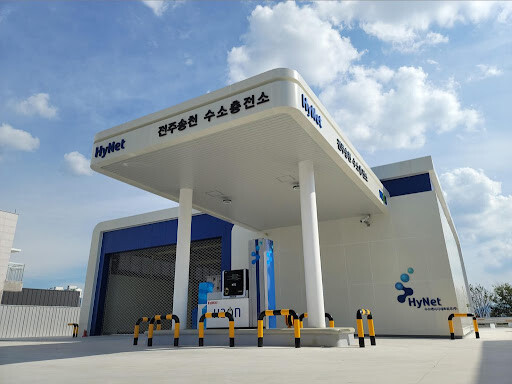
SEOUL, South Korea - South Korea's ambitious push towards a hydrogen-powered transportation future is encountering a significant hurdle: a glaring lack of charging infrastructure. As the cumulative number of hydrogen fuel cell electric vehicles (FCEVs) in the country approaches the 50,000 milestone this year, experts and industry players are voicing increasing concerns over the insufficient development of hydrogen refueling stations.
The adoption of FCEVs has seen steady growth since the introduction of Hyundai's Nexo SUV in 2018, reaching 39,216 units by the end of March 2025. Bolstered by government subsidies totaling KRW 721.8 billion for new passenger cars and buses, the nation is on track to enter the "50,000 hydrogen car era" in the coming months with the launch of the highly anticipated 'All New Nexo'.
However, this burgeoning fleet is outpacing the expansion of refueling facilities. As of late April, only 218 hydrogen charging stations are operational nationwide, with a disproportionate distribution across regions. While Gyeonggi province leads with 38 stations, Seoul, the nation's capital, has a mere nine. This limited infrastructure is deemed woefully inadequate to support a significantly larger fleet and facilitate widespread adoption.
"The current charging infrastructure is a major bottleneck," states a representative from a leading automotive supplier. "Without convenient and accessible refueling options, consumers will hesitate to embrace hydrogen vehicles, regardless of the attractive subsidies."
Hyundai Motor recently unveiled a mobile high-pressure hydrogen charging station, a potentially more flexible solution for deployment. However, industry insiders emphasize that technological advancements alone are insufficient. They are urging the government and local authorities to implement supportive policies, including tax incentives and streamlined permitting processes, to encourage investment in urban charging stations and alleviate the financial burdens on operators.
Beyond the immediate need for more refueling locations, calls are growing for a comprehensive national strategy to manage the entire hydrogen supply chain, from production and import to transportation and distribution.
"To truly accelerate the adoption of hydrogen vehicles, we need a stable and efficient supply chain," explains a hydrogen energy specialist. "This requires integrated national-level management, similar to how electricity and city gas are handled, to ensure price stability and supply security."
Currently, various government agencies oversee different aspects of the hydrogen market, leading to a fragmented approach. Unlike the city gas sector, where state-owned entities like the Korea Gas Corporation play a crucial role in stabilizing domestic prices by diversifying import sources and adjusting rates, the hydrogen sector relies heavily on private actors, leaving it vulnerable to supply disruptions and price volatility.
In contrast, global frontrunners in the hydrogen economy, such as the United States, Japan, and China, have recognized hydrogen's strategic importance as an alternative energy source and have established dedicated national agencies to oversee its development and deployment. These centralized bodies play a crucial role in policy formulation, research and development, and fostering public-private partnerships.
South Korea now faces the critical challenge of bridging the gap between its growing hydrogen vehicle fleet and the lagging charging infrastructure. Without a concerted effort to expand refueling options and establish a robust national hydrogen strategy, the nation's aspirations for a hydrogen-powered future risk being throttled before they can truly take off.
[Copyright (c) Global Economic Times. All Rights Reserved.]






























